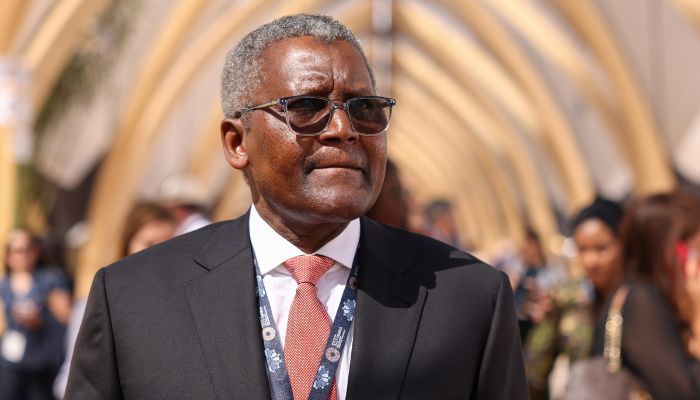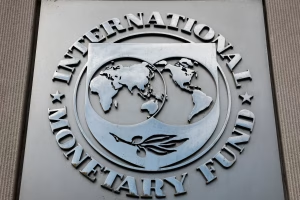Oil marketers in Nigeria, under the umbrella of the Petroleum Products Retail Outlets Owners Association of Nigeria (PETROAN), have voiced strong opposition to the Dangote Petroleum Refinery’s decision to sell refined petroleum products in US dollars.
PETROAN is urging the Nigerian government to prevent the Lagos-based refinery, owned by Africa’s richest man Aliko Dangote, from selling fuel to Nigerian marketers in dollars. The association’s president, Billy Gillis-Harry, told reporters on Tuesday that the policy would harm the Nigerian economy and worsen inflation.
This development coincides with the Dangote refinery intensifying its export of fuel to international markets, including a recent shipment of approximately two million barrels of aviation fuel to the United States.
Meanwhile, the Manufacturers Association of Nigeria (MAN) has stated that the production of polypropylene by the Dangote refinery has the potential to revitalise Nigeria’s struggling textile industry and save the country an estimated $267 million annually in import costs.
Dollar Sales Spark Concern
Last week, the Dangote refinery announced that it would no longer sell fuel to customers in Nigerian naira, citing the Federal Government’s suspension of crude oil sales to the facility in the local currency.
PETROAN’s reaction to this announcement has been critical. Mr. Gillis-Harry said the move had created anxiety among marketers, leading to panic buying of petrol over fears of potential scarcity and price increases.
“PETROAN opposes the sale of petroleum products or any other products within Nigeria in dollars,” Mr. Gillis-Harry stated. “We believe that such a practice would have an adverse impact on the economy, bringing undue pressure on foreign currency and exacerbating Nigeria’s already challenging inflationary situation.”
The association is calling on the government to ensure that all transactions within the country are conducted in naira to protect the economy and the well-being of Nigerians.
Concerns Over Domestic Supply
PETROAN also raised concerns about Nigeria’s continued inability to meet its growing demand for petroleum products, despite the operation of three local refineries, including the Dangote facility.
While acknowledging efforts to boost local production, the association pointed out that the combined output from these refineries is still insufficient to meet the country’s daily needs. PETROAN highlighted that the Nigerian National Petroleum Company Limited (NNPC) has two functional refineries, and the Dangote refinery, with a capacity of 650,000 barrels per day, is also operational. Additionally, several modular refineries and importers contribute to the supply chain.
However, PETROAN argued that the total local production capacity of approximately 835,000 barrels per day falls short of the national demand. The association stressed that the window for importing petroleum products must remain open to ensure a stable and sustainable supply, promote competition, and keep prices under control.
Dangote’s Export Drive
Despite the controversy over domestic sales, the Dangote refinery has been actively exporting aviation fuel to the United States. Data from ship-tracking service Kpler indicates that six vessels carrying around 1.7 million barrels of jet fuel from the refinery arrived at US ports this month. Another vessel is expected to arrive later in March with an additional 348,000 barrels.
A report by Reuters suggests that US jet fuel imports are set to reach a two-year high in March, largely due to shipments from the Dangote refinery. This influx of supply could potentially lower fuel prices in the US during the peak summer travel season.
Analysts note that the Dangote refinery, the largest in Africa, has the potential to reshape global fuel trading dynamics by becoming a significant supplier in the Atlantic Basin. The refinery, which began production in January 2024, ramped up output to about 85% of its capacity in February, allowing it to increase exports.
However, some analysts believe that Dangote’s role as a regular jet fuel supplier to the US might be limited, as a recent maintenance shutdown at a US refinery created a temporary opportunity for shipments from Nigeria.
Polypropylene Production Boost
In a more positive development, the Manufacturers Association of Nigeria (MAN) has highlighted the potential of the Dangote refinery’s polypropylene production to revive the country’s struggling textile industry. MAN estimates that this could save Nigeria $267 million in import costs annually.
MAN’s Director-General, Segun Ajayi-Kadir, explained that the lack of local polypropylene production and the scarcity of foreign exchange for imports had forced many textile companies to close down. He believes that the Dangote refinery’s production will not only meet Nigeria’s annual demand of about 250,000 metric tonnes but also enable the country to become a net exporter, generating foreign exchange.
Mr. Ajayi-Kadir urged the government and other stakeholders to support the local production of polypropylene through incentives, which he said would attract more investment and boost the manufacturing sector’s contribution to Nigeria’s GDP.
The Dangote refinery’s $2 billion petrochemical plant in Lagos is designed to produce 77 grades of polypropylene, with a capacity of 900,000 metric tonnes per year. It is expected to significantly boost investment in downstream industries, create jobs, increase tax revenues, and reduce foreign exchange outflow.





Add Comment